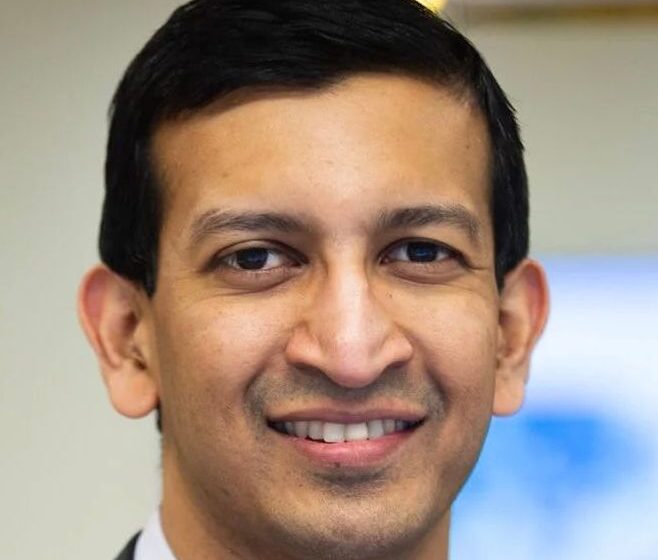Raj Chetty’s work on the American Dream wins Harvard prize

Raj Chetty
Indian American economist Raj Chetty has won Harvard University’s coveted George Ledlie Prize for weilding big data to break myths about who achieves the American Dream and the obstacles faced by others.
“Raj’s groundbreaking work on economic mobility and his efforts to share this data with policymakers are making the American Dream more accessible to all,” said University Provost and Chief Academic Officer Alan M. Garber.
Chetty is the William A. Ackman Professor of Economics at Harvard University and director of Opportunity Insights, a group of economists based at Harvard who study inequality.
READ: Indian Americans Siddhartha Mukherjee, Raj Chetty honored as ‘Great Immigrants’ (July 2, 2020)
Using anonymized tax records, Opportunity Insights constructed the Opportunity Atlas, an interactive tool that maps out economic outcomes for children across the US to highlight which neighborhoods seem to offer the best chance to rise from poverty, according to a media release.
The Atlas, which can be viewed free online, uses multigenerational data from 70,000 neighborhoods across America.
Chetty said he became interested in this work because of his own background coming to the US from India with his parents when he was 9 years old.
He said he saw the disparities not only between New Delhi and the US, but also between himself and his cousins.
READ: Raj Chetty, a ‘Genius’ economist, wins a medal next only to the Nobel Prize (April 15, 2013)
“My parents, who grew up in very low-income families and villages in South India … the opportunities they had were greatly shaped by the fact that they happened to be the ones who were picked to get a higher education in their families.”
Chetty said it was common at that time in developing countries that a family would pick only one child to get advanced education because they couldn’t afford to educate all the kids.
“And it so happened to be that my mom was the one chosen in her family, and my dad was the one chosen in his family,” he said.
“And I could kind of see how that’s played out through the generations in my own family, through the opportunities my cousins have had versus what I’ve had … ending up here at Harvard and the various opportunities I’ve had, I felt have stemmed from that.”
The work of Opportunity Insights is focused on helping policymakers and economists understand the real-life factors behind economic mobility and pave the way for new approaches to make the American Dream available to all.
His work applies a big-data approach to the science of economic opportunity — providing granular insights in much the same way that a microscope does for the biological sciences.
Chetty said one of the most impactful outcomes they’ve been able to observe is the role geography plays in children’s outcomes.
“There are some places in America where kids with the exact same background have much better chances of rising up,” he said.
“There are other places where they look much worse. So that was interesting in and of its own right, because it teaches you something about the origins of economic opportunity, that it really matters where you grow up. It’s about your community, schools, and neighborhood.
“It speaks to the old debates about nature versus nurture and shows that nurture matters quite a bit, but environment matters quite a bit above and beyond genetics and things like that,” he added.
Chetty’s earlier work focused on the fading American Dream, neighborhood variation, and the role of childhood environment as a key driver of economic mobility.
He has since gone on to explore other factors, including the role of racial disparities and social capital and connections.
This has led to research on public-policy levers — reducing racial and economic segregation, investing in place-based policies, and strengthening higher education — to increase equity and opportunity.
Chetty notes that already, real-world impacts are being seen from this research. For one, the Housing and Urban Development Agency has redesigned some affordable-housing policies to increase access to higher-opportunity neighborhoods, and several cities have undertaken new job-training programs as part of broader place-based initiatives.
Chetty said the recognition of his work with the Ledlie prize has meant a lot in part because of its recognition of economics as a science.
“One of the things I’ve been trying to push toward is making economics more of a science and viewed as a scientific field where it’s not just about making different assumptions and you have one view and I have another view and we kind of have a political debate but really grounded in data, grounded in empirical science,” he said.
He added, thinking about his mother, a pulmonologist, “coming from a family of people in natural sciences it was especially meaningful.”
Biologist Michael Springer was also awarded the prize for creating a better, faster test system to help deal with the spread of Covid.
The honor is bestowed no more frequently than every two years to a member of the Harvard community for making “the most valuable contribution to science, or in any way for the benefit of mankind.”
“Mike and Raj are distinguished researchers who have greatly advanced their respective scientific fields. But they are also committed to improving the well-being of other people, now and in the future,” Garber said.

